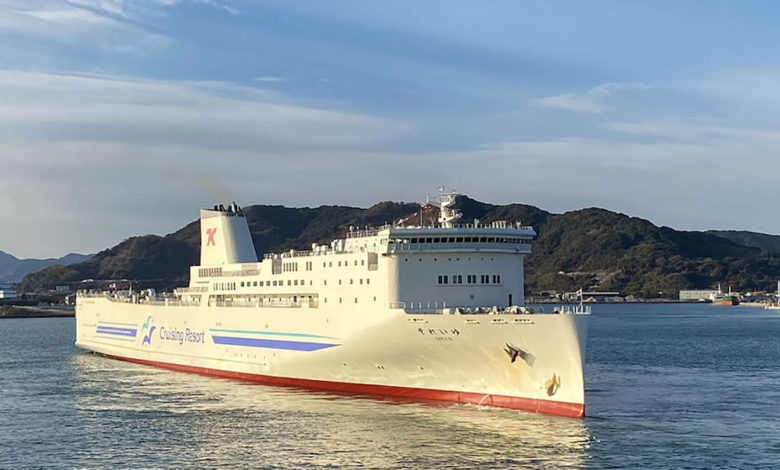Breakthrough year in autonomous shipping as international collaboration ramps up

One Sea Secretary General Sinikka Hartonen discusses the key developments in autonomous shipping in 2022 and provides an outlook for the year ahead.
2022 was a year of breakthroughs in autonomous shipping, opening the way for further significant progress in the coming 12 months. During MSC 105 in April, The International Maritime Organization (IMO) provided a roadmap for developing the MASS Code – anticipating a global regulatory framework on the operation of maritime autonomous surface ships (MASS).
The roadmap envisages the development of a goal-based instrument in the form of a non-mandatory Code, with a view to adoption in the second half of 2024 as the first stage. It also provides a gentle but much-needed push to start this important work. MASS is one of the main items on the agenda for the June 2023 meeting of IMO’s Maritime Safety Committee.
As regulatory work progressed, further advances in autonomous technology were also made during 2022, including through several real-life trials. For example, Avikus – which was founded by shipbuilding giant Hyundai Heavy Industries and is one of One Sea’s newest members – successfully completed the first ever transoceanic voyage of a merchant ship (the LNG carrier Prism Courage) using autonomous navigation technologies in June 2022.
Another world first was accomplished earlier in the year when Mitsubishi Shipbuilding and Shin Nihonkai Ferry completed the demonstration of fully autonomous ship navigation systems on a 222-metre RoPax ferry, Soleil (pictured), in Kyushu, Japan. The trial was part of The Nippon Foundation’s MEGURI2040 fully autonomous ship navigation project, in which One Sea member Monohakobi Technology Institute is an active participant. Other projects of interest included the Mayflower Autonomous Ship’s (MAS) completion of an unmanned crossing of the Atlantic Ocean from Plymouth, UK to Plymouth, Massachusetts on 30 June.
The recent upturn in successful trials of autonomous vessels has coincided with advancements in situational awareness and AI-enabled computer vision, in a trend expected to continue in 2023. Furthermore, the success of MAS, as well as that of Nellie Bly in 2021 and Prism Courage, demonstrates a growing trend towards trials taking place in international waters and involving representatives of multiple flag states. This is a key development because international collaboration will be crucial to establishing a safe and efficient global ecosystem whose benefits extend beyond local ports and waterways.
Collaboration at the regulatory level is therefore critical, and to facilitate this, the industry needs common terminology. That numerous governmental organisations, educational institutions and technology providers worldwide are contributing to the realisation of autonomous maritime transport systems is undoubtedly positive, but it can also cause issues with alignment. To ensure everyone is working towards the same goals, we need to be speaking the same language.
Against this background, One Sea and its members published an industry proposal for the Levels of Automation in shipping. It has since been promising to see that One Sea’s 0-5 scale of automation, which defines levels of automation based on the need for human attention or attendance, has been adopted by many industry players and continues to gain acceptance.
This has also coincided with changes in how the industry views autonomous shipping. Generally speaking, despite the rapid development of autonomous technologies, the industry is increasingly grounded in its ambitions, with a greater focus now being placed on realistic, short-term targets rather than on less tangible, long-term visions.
There now appears to be an understanding that automated and digital systems onboard can help crew perform their duties by performing tasks which can be automated, therefore allowing crew to concentrate on tasks that require greater levels of attention. And while such technologies could lead to a fully autonomous vessel one day, it feels like the industry has reached the conclusion that this is still far from becoming a reality, and instead a step-by-step approach is needed to integrate such systems into ship operations. Encouragingly, recommendations for the MASS Code already support this function-based approach.
Looking at the year ahead, I think we will see more multinational trials taking place and new technology being implemented, with a surge in novel solutions for commuter traffic and inland waterway transport in particular. As the only international association whose sole purpose is to promote the establishment of autonomous maritime transport systems and its enabling legislative environment, One Sea will continue to work closely with the IMO and individual member states to offer the industry perspective on MASS. To this end, the number of companies interested in joining One Sea has increased and over the last year we have welcomed Avikus, Sea Machines Robotics, and Orca AI to the association.
The development of MASS regulations will remain One Sea’s priority, and we will continue to work with stakeholders around the world to encourage collaboration at every level and establish a shared vocabulary towards an enabling legislative framework.
